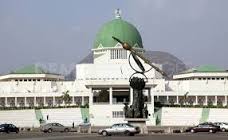
Yesterday, the country’s democratic enterprise crossed another milestone with the celebration of the second anniversary of the 8th National Assembly. Even more, it stretched the life of the legislature in the Fourth Republic to an unprecedented 18 years.
The legislature at other times was not always encouraging. The Third Republic legislature which lasted for 23 months was unarguably the most ridiculed. Gen. Ibrahim Babangida who conceived that unique form of diarchy with the express intention of using the legislature to win democratic credentials to his military regime nevertheless constrained the legislators to amuse themselves with legislating on the arts, culture, and tourism. They were forbidden from the serious acts of governance or scrutinizing the finances of the military government.
The Second Republic legislature like the First Republic had men and women who held their own against whoever was the leader of the executive arm of government. Recollections of Second Republic Senate Leader, Senator Olusola Saraki in comfortable grounds and holding his own against President Shehu Shagari showed the dignity of the legislature in those times. The Second Republic legislature lasted for four years and three months until it was deposed by the military government of Major-General Muhammadu Buhari.
Despite the grandeur and grace people like the Honurable Festus Okotie-Eboh brought to bear in the First Republic many historians still shudder at the fact that Senator Nwafor Orizu, the President of the Senate and also at the same time the Acting President of the country as at January 1966 was the one who handed over the reins of government to the military that year.
While the faces in the executive branch of government changed from civilians to soldiers, after the January 1966 coup, the apparatus of government as represented by the legislature was stifled.
In between 1966 and 1999 when the Fourth Republic was proclaimed, the institutions of the legislative branch of government barely grew as they were repeatedly suppressed. Though clerks of the National Assembly (equivalent to the Head of Service of the Federal Government) were appointed, they and their staff were not developed.
It was such a culture that allowed the dominance of the executive branch that gave birth to the misnomer of the executive branch of the government being described as the Federal Government.
The case for the legislature was not helped by the fact that two of the four presidents of the Fourth Republic were former military dictators—General Olusegun Obasanjo and Major-General Muhammadu Buhari. That these two men came to serve as civilian president with a military mentality did not just reduce the legislative branch of government but even their own political parties.
See how the Peoples Democratic Party, PDP conceived by men of ideas like Chief Sunday Awoniyi, Dr. Alex Ekwueme, Alhaji Sule Lamido was reduced to a garrison brigade after Col. Ahmadu Ali was posted there by Obasanjo as national chairman.
Or do we consider the cavalier dismissal and disregard of the All Progressives Congress, APC leadership by the Buhari regime?
Unfortunately, the insolence of the superiority of the executive branch over the legislature has been accepted by many unthinking Nigerians who believe that the actions of the executive should be taken as fiat. Such idiocy surprisingly even finds place among many legislators. But not all.
Remarkably, among some former legislators who have fought for the independence of the legislature are two men presently in the Buhari government.
Alhaji Bawa Bwari as chief whip of the House of Representatives between 1999 and 2007; and despite being something like a political godson to President Obasanjo was in the forefront in marshalling several of the battles waged by the Ghali Na‘Abba House against the Obasanjo executive.
Senator Udoma Udo Udoma as chairman of the Senate Committee on Appropriation in 2003 also helped to demystify insinuations that the legislature cannot alter budget proposals of the executive when the National Assembly that year raised the budget proposals submitted by Obasanjo by 28%.
But Senator Udoma’s sterling role in defence of democracy and the legislature was his inspiring intellectual role in the abortion of the Third Term amendment for executive office holders. He was arguably the only PDP principal official who did not financially benefit from that scam!
Of course, the case for the legislature has more often than not been harmed by the legislators themselves. The unbridled recourse to imprudence and love for laxity have more often than not helped to stifle the legislative branch. Imagine how they have for years ignored bringing to enactment the National Assembly Research and Budget Office, NABRO, an office that is supposed to equip the institution of the legislature.
Anyway, congratulations to Nigeria’s democracy.
